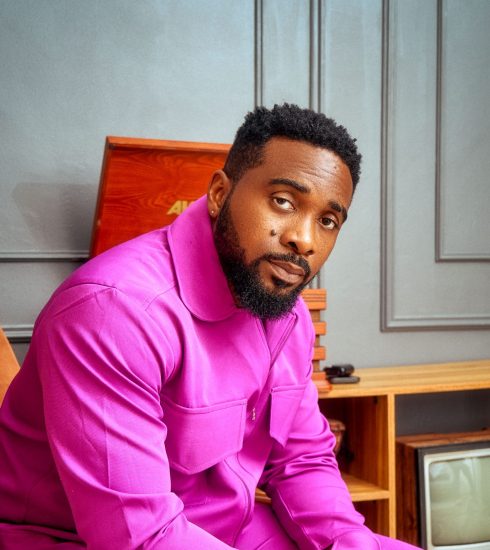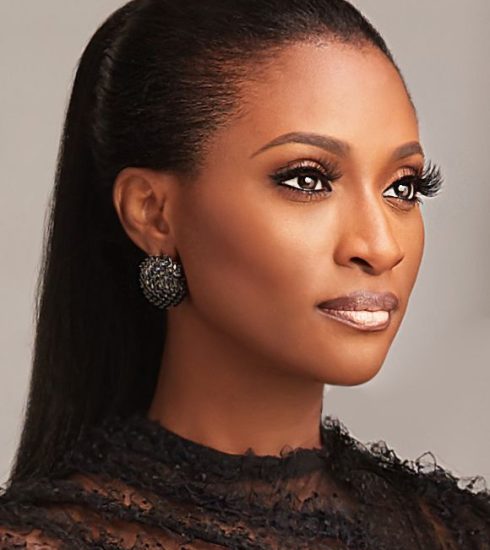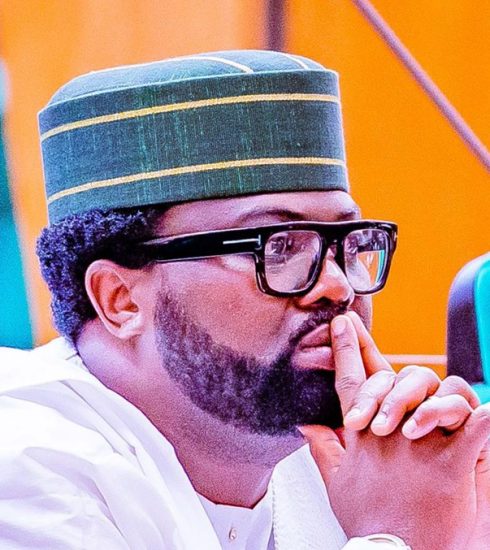TOURISM: THE OIL OF THE FUTURE… Folorunsho Coker Tells us Why
Tourism, the practice of travelling for recreation and sometimes business, is a phenomenon most countries pay utmost importance to. A subject matter so broad, it cuts across entertainment and hospitality, one would think a country so blessed geographically like ours should be leading conversations on tourism, seeing how incredibly rich we are in arts and culture. This was not the case.
Well, not until Folorunsho Folarin Coker was trusted with the task of marketing the most populous black nation on earth and its tourist offerings. ‘Foli’ Coker, as he’s fondly called, has the most impressive CV in the industry but this man is beyond a piece of paper with a few achievements on it. A career that started as the Personal Assistant to perhaps one of the most influential persons in Lagos, Asiwaju Bola Ahmed Tinubu, has seen him serve Lagos state for 17 years before he got a promotion to replicate his success at state level nationwide as the Director-General of the Nigerian Tourism Development Corporation.
To celebrate World Tourism Day, DOWNTOWN’S Kehindé Fagbule got the opportunity of a sit-down with one of the people responsible for making Lagos as commercially vibrant as it is today to discuss the tourism industry in Nigeria, the archaic laws preventing it from thriving, and how to fix what could be a potential cash cow for the country.
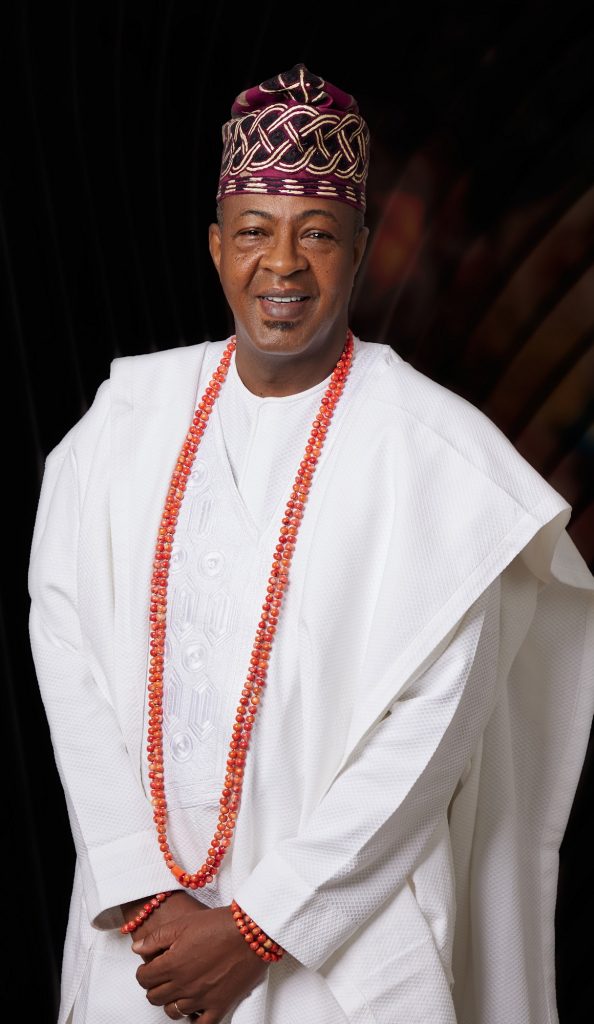
You have a degree in combined studies, Economics, and Geography from Manchester University. Postgraduate degree in Diplomacy, International Trade, and Finance from the University of Westminster. None of those have anything to do with tourism but yet here we are. How did that happen?
I think education is just maturing of the mind for you to be able to apply the disciplined framework to anything you want to do. I’ve run a nightclub, spa, restaurants, I’ve done all sorts of trading in my life. The important thing is using it to find value. Education is for creating value: value for money, integrity, family, friends, your God, it’s a foundation on which you can grow anything. So a good education like my parents gave me has just been a foundation for me to grow anything I want to grow.
Your father Folarin Coker was a loyal servant to Nigeria. What are some things you learnt from him?
Our similarity is uncanny. I asked him a question on his deathbed: “In all your 97 years, what can you tell me?” And he said, “In all things, give thanks.” Those were his last words to me. He said “Life is neither the tempest nor is it a midsummer night’s dream, very often, life is a comedy of errors. You may see it as you like and make much ado about nothing.”
“In your life, do every good thing you want to do because you don’t want to be old and have regrets about things you wish you had done but never did. Be kind and nice but be intentional in purpose with your kindness and niceness, don’t be a fool,” he concluded.
In the end, he became my son and I became his father. He abdicated all responsibilities of fatherhood and I assumed the responsibilities of both manhood and fatherhood to look after him. My father was a very intense man and a deep-thinker. He grew old gracefully having lived a beautiful life, his life was one to be emulated.
He retired before he turned 60-years- old and did some board appointments, university chancellorship, nothing heavy. He never owned a generator or a mobile phone. He had a few air conditioners in his house and they all just disintegrated, he never used them, he believed in natural air. He ate simply, had a drink, smoked cigars, and loved to party. I asked him one day: “What is the key to longevity?” He replied “Have something you look forward to doing every day. Also, whatever small components of whatever it is you are doing, strive to be the best at it.” These are pretty much the rudders that I try to spend my life on.
I’m a practicing Muslim who prays five times a day. I’m more spiritual than religious, so I carry my God in my heart and I believe God sees my heart. There are many interpretations of who I am and I’m sure you came here with some preconceptions of who I’m supposed to be but that is life and that is public life. I thank God for his life and for mine as well.
Nigeria is not exactly known for its tourism like Dubia, Maldives, and so on. Why is this?
Because everyone has been brainwashed by the platforms that market those destinations. Why do you want to go to Dubai? Because of what people say about Dubai, the glitz, the domestic industry, that’s all.
…it does seem like a nice place to relax though.
Yes, it is. There are wonderful places that are beautiful to relax in as well. Let me break it down: what do you enjoy when you go to Dubai? The shopping, restaurants, beautiful views, and so on. They are all domestic to Dubai. Dubai built such a strong domestic industry and along with it a strong airline. A solid domestic industry is the foundation that attracts international tourism which is just a ticket connected to our domestic tourism assets. It’s not about infrastructure, roads, or security because people still go to Mexico. Mexico is not so shiny with the crimes, killings, drug wars, kidnapping, gorilla infections, etcetera. It is not different from us here. If you want international tourism, you must build your domestic industry.
We must change our laws, they are old and overlapping. I’ve been harping on this point for five years since I got in office. In Dubai, they’ve now changed their laws so that unmarried couples can spend the night. Hotels in there have changed their laws on alcohol. Saudi Arabia is now doing more than religious tourism, they’re doing proper tourism.
The human capital requirements need to be addressed with training. You can’t have someone with a degree in chemical engineering as a barman with no skill for the job, just using common sense. We need vocational training, not University education so that we can teach our teeming youths how to be tour guides, how to run proper bars, restaurants, museums, etcetera. It is vocational training with all the job experience by proper teachers/trainers that can help lift this industry in Nigeria. It’s the largest employer of labour, particularly women and children, in the world. Also, tourism consumes everything. If you manufacture, tourism will consume your manufactured goods. If you grow agric, tourism will consume it. If you have the best churches, tourism will consume it as we already see with large churches that have international people fly in from all over the world to attend their conventions. Tourism also has all the ingredients you need. The hotels are there, whatever roads we have are there, the restaurants are there as well. Start with what you have and use the throughput of what you have. Domestic tourism is six times bigger than international tourism. How many international tourists come to Nigeria and how much do they spend? How much do the regular Nigerians spend on travel with the easterners going home for Christmas, northerners going home for Ramadan and the religious going for their various conventions? If you look at that movement alone and the values that are generated by those internal movements, it is good money.
For instance, in Osun Oshogbo, ask MTN to build a cell site so that people can transfer images better, put a bit more security.
Make sure that the road is lined: a road in and a road out so it’s not the same. Make sure that there’s a degree of public education before the event and you maintain it; such as where not to urinate and defecate. Make it organised in a way that anyone can pay an agent to buy a seat in Osun Oshogbo festival and travel from America, be bussed over to the venue and their seat is there like they want to go and watch Manchester United play. That is strong domestic tourism, it must have structure. It must have laws that are up-to-date in regulation, taxation, and legislation. The human capital element must reflect not academy degree studied in America or England, but vocational and specific, intentional and targeted towards our own. A tour guide in Osun Oshogbo doesn’t need a degree from London, they need vocational training to tell the story of Osun Oshogbo. There should be guides that can speak multiple languages because if you want people to come from all over the world, you must be able to cater to their needs. Invest in small infrastructure every year. The right packaging will in turn attract visitors and investors.
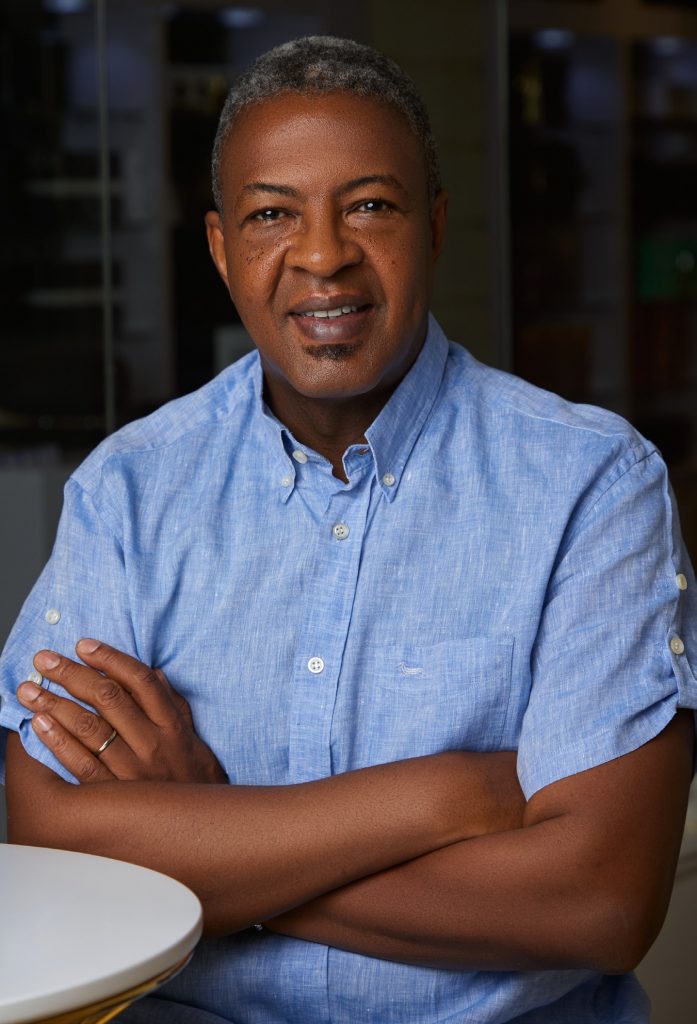
Speaking of digital storytelling in 4k resolution, we are seriously lacking in that aspect. Getting images online to accompany your Nigerian tourism article is extremely difficult.
We are actually in collaboration to collect images from the 36 states in Nigeria. We’re in the third state now, it’s a long-term project, very difficult but we’re going to do it so that we will have a bank of images, so when you want to write, you help us tell a better story.
For storytelling, we created certain handles on social media: @TourNigeria and Nigerian Flavours (@ngnflavours). The whole concept is to tour Nigeria to experience the flavours of Nigeria. Our culture, food, religion, fashion, and beautiful women; Nigerian women are the most beautiful women in the world. There’s nowhere in the world I’ve been to and seen such an aggregation of beautiful women, forget it
Last year saw the collaboration between Nigeria Tourism Development Corporation (NTDC) and Arts and Culture. Well over a year later, can you tell us what that partnership has achieved?
People get it wrong. NTDC has the mandate to market, create products and push a positive image of Nigeria, so we consume arts and culture. It is the arts of a people that generate what we see as their culture, and it is that culture that tourism goes to see. The arts and culture of Dubai are what makes us go there and that’s what is in the domestic tourism industry. In Nigeria, our art is strong, our culture is powerful. We alone consume a lot of our tourism, so what we want is more people to soften the image of Nigeria, so that people are not so scared of the country because there’s nothing to be scared of. Is Nigeria the murder capital of the world? America is. Is Nigeria the rape capital of the world? Neither are we the fraud capital of the world. I am deeply sorry for every life that’s been lost in the midst of the militia unrest that we have but when you look at the absolute numbers, how many people are murdered in some western cities? Gang-related culture alone, how many die? Thousands more than die here, but we do not own the platforms that amplify the tragedies. They do that because we are not conscious and aware of what we’re doing to ourselves by constantly sensationalising things that really shouldn’t be in a global context.
They help us market it, so what they’re doing is demarketing us and giving us that hue. Take away two issues that are not greater in Nigeria than any in the world: security and infrastructure, from Nigeria’s image, address it fairly in the world ranking order. This is a great nation, I’m proudly Nigerian, I wouldn’t be anywhere else. Everybody shouts of some African countries that are supposedly doing well now, what did they do to get there? What happened in Ghana and Rwanda? We don’t want that to be our story. We can grow our own but to do that, we must start by appreciating what we have first and valuing it. It is that appreciation of the value of whatever little it is we seem to think we have, that is where the awareness and the value start to grow.
I was talking about what needed to be done, there’s also the issue of finance. Tourism doesn’t like expensive money. If you want to build a hotel, you try to borrow money but at what interest rate? That’s why there are so many uncompleted ones. Tourism needs the kind of support that the oil industry gets. A fraction of that percentage used to even just renovate the government-owned tourism assets; the government hotels, stadiums, arenas, and so on. Music doesn’t have a home, there’s no 5000-seater hall in Nigeria where Mavin can go and throw down all their artists for instance. There’s no gallery of contemporary art where we can put top Nigerians paintings, a permanent exhibition. Why is the Louvre (art museum in France) such an important place? Why does Picasso sit there so majestically? It has a home where people pay to visit it.
I downplay the issue of infrastructure as there are countries with less infrastructure who are doing good tourism. I think we need to break down and identify the kinds of sustainable tourism that we’ve had.
We have fashion tourism in Nigeria, people come here; we have economic tourism, people come to buy; business tourism, people come to do business; religious tourism, people come to pray, Nigeria is a Mecca; we have the tourism that’s driven by our music and film. How many countries have all that? A lot of sub-Saharan countries have tourism built on Nigerian tourism masses. For instance, the festivals in Ghana had Nigerians as their A-listers.
You’ve had successful projects in Lagos in the past, most notably the One Lagos Fiesta. Tell us about it.
Look what happened in Lagos. We had 25 concerts in five days in Ikorodu, Epe, Badagry, Bar beach, and Agege, five different locations – never been done before. We rotated the same footprint over 120 artists in those five days. I don’t think there’s ever been a bigger event than that and it was free of crime, people made money, money was pushed to the locality. The average woman selling point-and-kill fish had bought one drum of fish which she was aiming to sell from maybe Christmas Eve till the New Year but sold it in one day and proceeded to sell that drum every day. We forced the value down to the grassroots. When command and control allow the transfer of values to the very bottom, the bottom will not destroy the value.
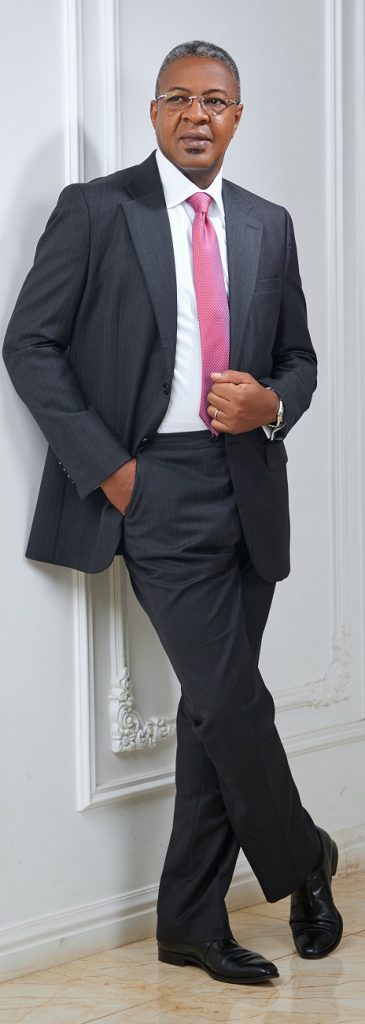
Folorunsho Coker
Tell us about your decision to revoke the NTDC Act of 1992 and enact a new one.
A lot of things we’ve been working on are not just going to happen in one day. For the last five years, I’ve been chasing to change the law, to bring the law from 1992 to 2025, so that the rules that allow investments in tourism, the funding, regulations, classifications of hotels, and all the things that Dubai, that has changed their laws three times since the pandemic started, has done to make their laws more attractive to businesses. They keep on weaponizing them against countries that have population and cash; they don’t have the population. So we’ve been trying to change the law; we’ve been to the senate’s, house of rep and the Villa, there were some objections to some parts because when you’re changing a law, you have to make sure that it doesn’t conflict with other agencies of government. We’re now taking it back for the presidency to consider.
What does the law do?
That law streamlines what NTDC is supposed to do, so we maintain our lane and all other agencies maintain theirs. Revenue is very important, without money you can’t market Nigeria.
One of the things about the industry right now is the feeling of “I don’t get value for money.” If I check in to a supposed 4-star hotel that I pay $100 for and the water is brown and I was given a bucket to bathe with, that’s not value for money.
This is why there is a need for classification and we have a supreme court judgement because the constitution is so silent on the law on tourism in Nigeria. That law and the supreme court judgement as it stands makes the agency very weak and vulnerable to all sorts of predatory behaviour from other non-concerned agencies. Our job is to market tourism, in terms of training, because of the shortage of funding, what we have also done is partner with some of the giants of the digital world – Google and Facebook – data mining, training of how to use the Google tools for better understanding of what is going on, they shared some data with us. We’ve also done some of our own in-house training. I’ve also had to clean up a lot of things. I’ve had to change the agency, expand the organogram and we’re very happy with that. We are also working on the conditions of service which was shockingly never in place, so we’re working with the Ministry of Labour and Civil Service Commission to get accommodations of service out. We have put our funding requirements clearly to the legislature for the past four years and in the last two years, they have finally responded by being sympathetic to our funding requests.
Do we know when to expect approval?
We are hopeful that before the end of this year, we will get some traction on the change.
First appointed as the DG NTDC in 2017, you were recently re-appointed, making it 4 years so far. What are some of your biggest achievements in this role to date?
With Tour Nigeria, we have a nice digital presence, we are on Google arts and culture. We’ve had four Nigerian Flavours events where we pretty much teach you how to use what you have better. The Flavours experiences are like concerts, an opportunity for all local stakeholders; we aggregate the crowd and expose your business to that crowd for two to three days, so what revenues you make in a month, you may make it within those days.
Have I built a new hotel? No. It’s not my job to build hotels, but it’s also something I’m not funded to do. However, we have done reviews of existing assets such as the Tigadam, Kano Dubar, Osun Oshogbo, KatampeHill, and so on. We’ve been to those places, looked at them, and told them (the facility managers) what to do.
For corporate governance – we’ve got the laws, human capital development – the training, infrastructural development, we have six geopolitical offices that were nonexistent before. They are all functioning right now, they’re in Lagos, Bauchi, Kano, Jos, Calabar, and Enugu. We’re hoping that all these things are going to be the foundation.
How do you feel about the fact that Nollywood gets more support from the government than tourism? Should it be the other way around or should the attention be split equally?
If you put money into music, film, fashion, and art, I am the ultimate beneficiary of all those things because tourism benefits from all of them. There’s no irritation to the fact that Nollywood gets better funding, we just want the funding to market Nollywood better. Nigeria has the second-largest film industry in the world by numbers, so I would like to have a festival of African films where I call all the film-making countries to come to Abuja and exhibit like the one in England, the BAFTAs, and the Oscars in America. By the fact that we have the greatest volume, we should have the biggest and most respected awards in Nigeria. But what do we have? We have awards in tents and claim to have award shows. Look at the Grammys, with private sector participation, that is what we should be driving at.
I have said time and again that we need to grow Nigeria, the Naira, value, and employment.
I think one of the things we must beg for is developmental journalism. Journalism that says “This is what is wrong” without sensation, and real in the global context, not just in isolation. I mean look at the vibe of Lagos. I’ve told so many expatriates who I met years ago that they won’t leave Lagos… They’re still here. They’ve changed jobs, gotten married, they are addicted to that soul of a Nigerian, that irrepressible can-do “no dey carry last” entrepreneurial spirit, it is intangible.
The music industry too; enables and strengthens them, looks at their issues, and pushes them to do more. These are invisible tourism assets to Nigeria. They have a value that flows back to us that we need to look at how we explore it. Do you see a future where Tourism becomes as economically beneficial to Nigeria as oil is? Oil will finish, tourism will never finish. So this is the time for us to start to look at how we switch revenue to start to build the oil of the future.
It’s either oil finishes or people stop buying oil, whichever way, the relevance of oil must come down. Tourism will never end. Tourism is the reward for a good state, it is a confirmation that it is well, your environment is well. Let us invest in that ecosystem that will give us that revenue we are looking for internally, regionally, and internationally.
So what is the disconnect? If Dubai can pull it off so well, why can’t we?
The disconnect is the law. Let me put it in another way. When Nigeria found oil if we did not enable the laws that would allow Mobil Exxon to come and explore the oil, bring it out, sell it and make that much money, that oil would still be underground. It all started with an enabling law. Nobody is coming to your country to invest unless they see that it is running on an investment-friendly legislature. When we made so much money from oil, the banks couldn’t cope with that much money, so we created an enabling law that allowed the banking community to expand, that grew the Zeniths, GTBanks, in the 80s. When they changed the laws, these new banks that could handle money better came. However, it still wasn’t perfect as transactions were slow because, in those days, you had to wait for the dial or through fax. Then there was a Telecom’s revolution. GSM came, data came, we now have phones that are smarter than a whole University. Communication revolution came that helped banks communicate, we started getting cash points, POS. The legislature allowed the MTNs and Econet to come around. Now we have a digital revolution sitting down on the back of that communication revolution which is now broadband – 5G, the speed and volume you can communicate with. We need to look at that digital revolution carefully. We need to embrace the good bits out of it and we need to allow for tourism to enjoy it because tourism is now digitally driven. Tourism used to be travels and tours, now there’s a new “t” added and it stands for “technology.”
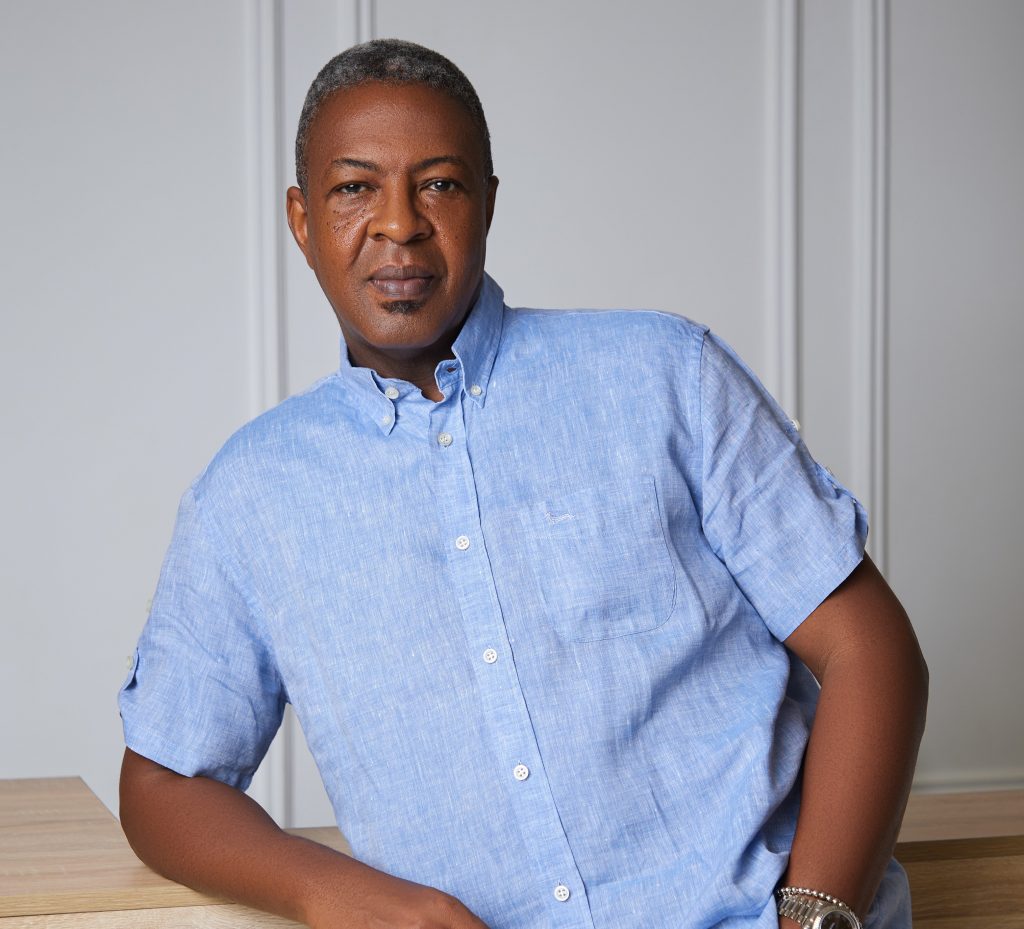
Folorunsho Coker
You’re a self-renowned foodie and it is very evident on your Instagram page. Let’s talk about your ‘Food Flavor’ project which you have now taken to Abuja as ‘Nigerian Flavors’. Are we going to have it on a grand scale?
It’s not a grand-scale event, it’s a small-scale event every year. Every local government should have a day when they celebrate the flavours of Nigeria. The best way to teach someone is like what we just did in Calabar. We had stakeholders meeting one day in Calabar, the next day we had a Nigerian Flavours event where we called all their local vendors.
Everything we used was in Calabar; the food, drinks, music, fashion, we put everyone in a courtyard and thousands of people were present. Calabar has suffered from a bad image issue, they couldn’t believe that they could do that. It was meant to be for one day, they didn’t stop on that day. It’s not a grand finale thing in Eagle Square in Abuja, it’s a community project, a state encouraging its local governments to celebrate the flavours of Nigeria. It’s a way of transferring impact funding. It’s like having multiple Coachella events at the grassroots levels.
Congratulations on your conferment as the ‘Baba Eto’ of the Ilara Kingdom by HRM Oba Olufolarin Olukayode Ogunsanwo. Taking over from your late father. Do you intend to use your title to promote tourism, and how?
I’m grateful to Onilara of Ilara, my good friend, who conferred on me the title of my late father. It’s an investment in my life and that matters a lot to me. Of course, tourism is all about culture and traditions and this is the biggest level of that.
Self-identifies as a middle child between millennials and the gen Z, began writing as a 14 year-old. Born and raised in Lagos where he would go on to obtain a degree in the University of Lagos, he mainly draws inspiration from societal issues and the ills within. His "live and let live" mantra shapes his thought process as he writes about lifestyle from a place of empathy and emotional intelligence. When he is not writing, he is very invested in football and sociopolitical commentary on social media.




